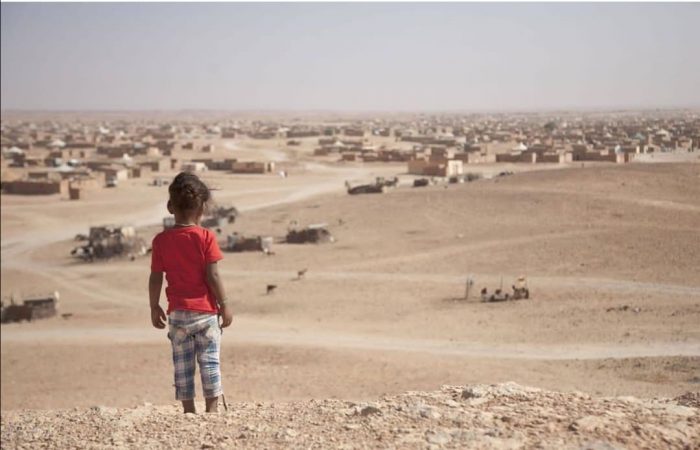Women and girls are the most vulnerable members of refugee and migrant communities worldwide. They also represent the vast majority of world’s refugee and migrant populations. During the COVID crisis, many of their basic needs have gone unmet as humanitarian aid organizations and health workers have been forced to retract or suspend service delivery because of COVID health risks to their own personnel. As a consequence, women and girls in refugee and migrant communities have been forced rely to an even greater extent than before on their own resources and capacities. Among the many challenges women and girls confront during the pandemic are access to basic necessities such as clean water, food, soap and clothing, not to mention proper personal protective equipment or access to basic health services.
While COVID presents is own unique set of challenges such as maintaining social distancing, engaging in frequent handwashing and using face masks, especially in confined spaces, these challenges are accentuated in the crowded living conditions most refugees and migrants experience in camps or in the confines of an urban environment. It is also apparent that many other health needs beyond the threat of COVID are going unmet during the crisis such as access to medication for chronic diseases that are prevalent in refugee and migrant communities, including infectious and parasitic diseases such as hepatitis B or C, STDs, anemia which threatens women more than men because of chronic malnutrition and endemic deprivation, reproductive health issues, psychological depression and gender-based violence.
These problems and urgent needs have been amply documented in our own discussions with refugee women, refugee networks like our partner Global Independent Refugee Women Leaders (GIRWL), our institutional partner CUSO International, and recent studies and groups including PeaceWomen and the Lancet Commission on Migration and Health with which we have been in contact.

Watch our virtual conference with Global Independent Refugee Women Leaders (GIRWL) — Refugee Women: Responding to COVID-19
The project will have six distinct phases:
- Capacity building and virtual/networked institution-building of our GIRWL partners to help them develop and strengthen their own global women’s refugee network through the development of a series of online mobile and virtual platforms that will allow the group to broaden its reach and effectiveness beyond the extensive set of local networks of women and girls it has already developed;
- Work with GIRWL and other women’s refugee and migrant groups in cooperation with Facebook, which has agreed to work with us on a pro bono basis, to develop a series of online, secure communication and engagement platforms;
- Tailor those platforms to the specific communication needs of different women and girls refugee/migrant communities so that these groups can exchange information on a real-time basis and develop stronger self-help networks;
- Support the work of local women leaders to train on and disseminate these mobile and online tools; and
- Ensure that those tools are tailored/customized to local language requirements and local community social, economic and health needs;
- Promote the creation of linkages between different women refugee/migrant networks at the national, regional and global levels that can foster ongoing exchanges of information, knowledge, and best practices across their different networks.
